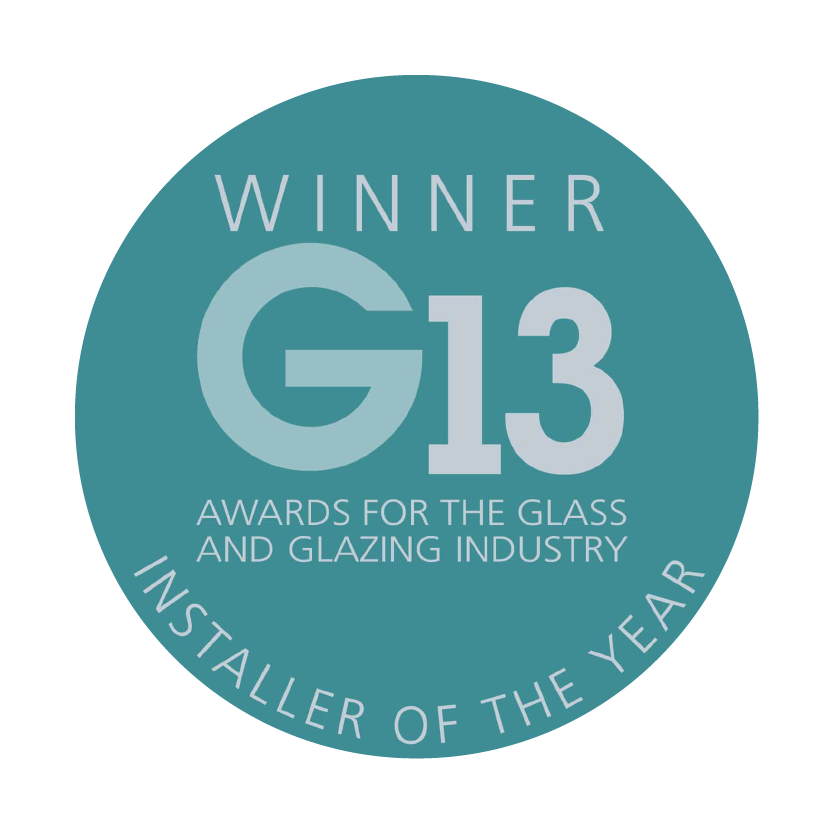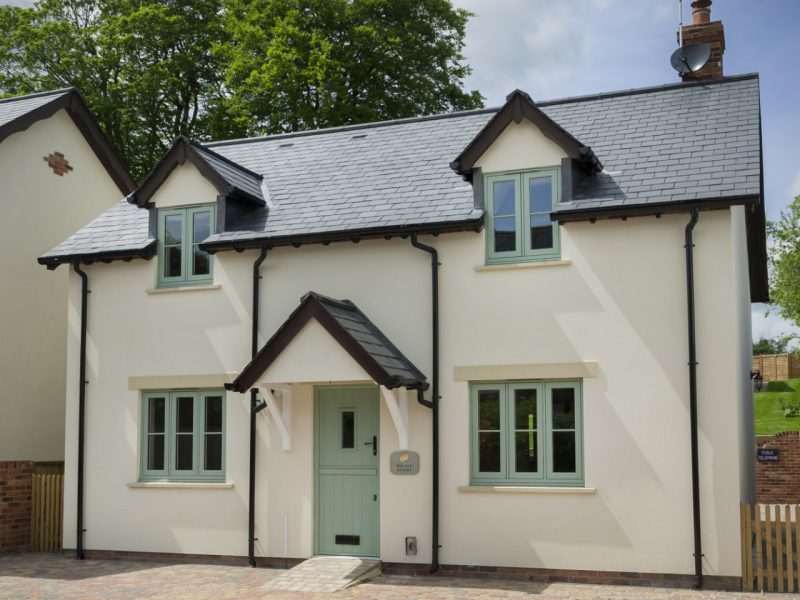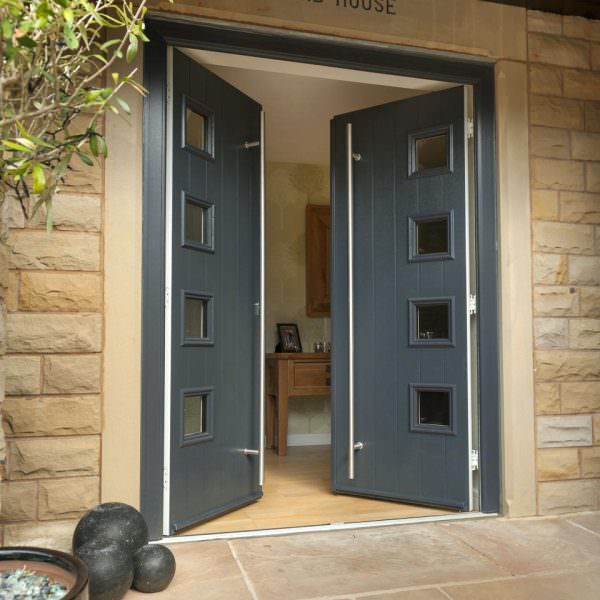
Timber - PVC - Aluminium - Windows, Doors & Conservatories in Dorset
Hot summers – Overheating homes
Hot summers – Overheating homes
We take a look at what you can do to keep your home cooler in summer as long term forecasts suggest Hampshire summers are about to get a lot hotter.
The UK’s climate is changing, which means summers are getting hotter and while that will be welcomed by many, there’s a pretty serious downside attached.
According to a warning from MPs there could be as many as 7,000, heat related deaths every year in the UK by 2050, with the old particularly vulnerable to increasingly extreme temperatures.
The Environmental Audit Committee warning that the UK is ‘woefully unprepared’ for heatwaves, with one in five homes dangerously overheating during heatwaves. They reported that on the hottest day of the year in 2016, alone there were almost 400 heat related deaths.
MPs and officials adding that successive governments had ignored warnings. Kathryn Brown, Head of Adaptation at the Committee on Climate Change arguing that it had warned that it had urged every government since 2014 that a ‘new standard or regulation was needed to address the risk from overheating of new homes’.
This goes far beyond ‘bowls of ice in front of fans’ and the ‘drawing of curtains and hanging of wet sheets in front of window’, plus all of the other top tips to keep cool this summer, which filled the tabloid press, to the fundamentals of good building design.
Are there any minimum standards in place to keep homes cool?
There are no specific requirements on housebuilders to design homes that don’t overheat. What we have is in Part L of Building Regulations on home energy efficiency.
This sets out a requirement on housebuilders to build homes which deliver ‘reasonable conservation of fuel and power’ including ‘limiting heat gains and ‘losses’.
The UK’s up until now less than clement summers, means that the focus of housebuilders has been on the latter – heat loss – rather than heat gains.
Why is my home getting so hot at night?
Warmer summers expose a number of weaknesses in the design of our homes.
If you look at the traditional design of properties in any warm country, openings i.e. windows are small , particularly if they’re south facing.
Rewind to the UK and it’s almost the polar opposite. South facing gardens are prized by house buyers as gardens are in full sun for more of the day. Rather than designing the south facing sides of our homes with small windows, we do the opposite.
It’s where we put large expanses of glass – bi-fold and sliding patio doors; French doors and conservatories. This means on hot days our homes absorb huge amounts of heat.
This is compounded in denser urban areas where heat absorbed and stored in pavements, roads and masonry. It’s then released back into the atmosphere at night, making sleeping almost impossible.
How can I stop my home from overheating on hot days?
Housebuilders need to give excessive heat gain more consideration in the design of new homes and they have the flexibility to do, because they’re starting from a blank sheet of paper. But what about those of us who aren’t? It’s very unlikely that we’re going to want to ‘brick-up’ the south faces of our homes to keep them cooler in the summer. Let’s not forget that the soaring temperatures we’re seeing are for now still the exception to the rule. By definition this means that your choice of new windows or folding sliding doors and patios, is going to be extremely important in defining the heat gain within your home.
If we take a look at our warmer European neighbours things are so much different. They tend to have shutters on the outside of windows to stop the suns heat entering through them, they also don't tend to leave windows open during the day. So how do we stop the heat rising in our homes in the UK?
- Keep your windows closed during the day
- Keep your curtains closed during the day
- If the temperature drops in the evening then open the windows
Logic would say that if the outside air temperature is higher than the internal temperature in your home, then opening the window will only allow the warmer air in. If you keep your windows and curtains closed during the warmer weather, this will stop the heat and solar gain entering. IF the temperature drops in the evening then opening windows throughout the home can create a through-draught to provide cooler air-flow through your home. Heat rises, so it maybe cooler to sleep on the floor or maybe even downstairs in your home.
How to specify the right glass for your new bi-folding doors, sliding doors or French doors
Glass is singularly the most technical aspect of window design. It’s also one of the areas where innovation has delivered some of the biggest gains.
This is because glass today uses a multitude of coatings to offer some very smart designs, which will allow architect to use it throughout entire buildings. The same technologies used to keep glass monoliths like The Shard cool in the summer are also available to us as homeowners but you need to know what you’re looking for.
Things to think about when choosing glass for bi-folding and sliding doors:
- The energy efficiency of glass isn’t a guarantee that it will keep you cool. The ‘Thermos effect’ doesn’t quite apply
- Window Energy Ratings (WERs) need to be treated with caution. They rely on three measurements to define performance: u-values (heat loss or transfer) solar gain (warmth from the sun) and heat lost through air penetration. Solar gain is the very thing you don’t want on a hot day
- Focus on u-values and g-values – the lower the figure the better. The g-value is a pure measure of heat transfer through the window. The u-value is how it performs as an insulator. If your windows stop heat escaping from your home, they’ll also prevent it from getting in
- If you intend to use a lot of glass in the South facing aspect of your property you need to consider solar control glazing, anti-sun and reflective glass. This allows you to use large areas of glass but will reduce the transfer of heat from the sun inside your home.
How Solar Control Glass keeps your home cool
Solar control glass, also referred to as anti-sun glass and reflective glass helps to keep your home cool on hot days by limiting the amount of heat it absorbs from the sun by using special coatings and interlayers which are applied to the glass but not noticeable to the eye.
High performance solar control glass does this by controlling three factors that influence how much heat your home or conservatory absorbs.
These are:
- Reflectance – how much radiation from the sun the surface of the glass reflects back into the atmosphere
- Direct transmittance – or how much of the suns radiation is transmitted directly through the glass
- Absorptance – how much heat is absorbed by the glass and indirectly radiates inside the building
All of the above contribute to the warming of the building or the ‘G’ value, cited in the Window Energy Ratings window performance measure.
A G-value of 1.0 represents full transmittance of all solar radiation while 0.0 represents a window with no solar energy transmittance. In practice though, most G-values will range between 0.2 and 0.7, with solar control glazing having a g-value as low as 0.18 – less than quarter of the G-value of standard glass.
Closing thoughts
The prospect of warmer summers will appeal to a lot of us but we need to think carefully about the design of our homes but also equally, the material choices we make. We offer an extensive range of aluminium bi-folding doors and glazed extensions . The uses of glass in our homes makes them lighter and brighter all year round.
But if our summers are going to get warmer, we need to adopt a responsible approach to the design of our homes but also use of glass within them.
There are solutions. Solar control and anti-sun glass gives us the flexibility to supply windows and doors; conservatories and French doors, as well as bi-folding and patio doors, while controlling the amount of heat our homes absorb from the sun.
Long term forecasts for hotter summers, make that small additional investment appear a prudent option when choosing new glazed extensions, windows, doors and aluminium bi-folds.
If you’re looking for help in planning your next home improvement, or simply want to talk about any of the points raised in this discussion, please don’t hesitate to contact me or a member of the team for more by calling 01264 359355 or emailing email [email protected]
- uPVC vs Composite Front Doors: Understanding the Difference - 16 September 2025
- Is It Worth Replacing Double Glazing With Triple Glazing? - 16 September 2025













